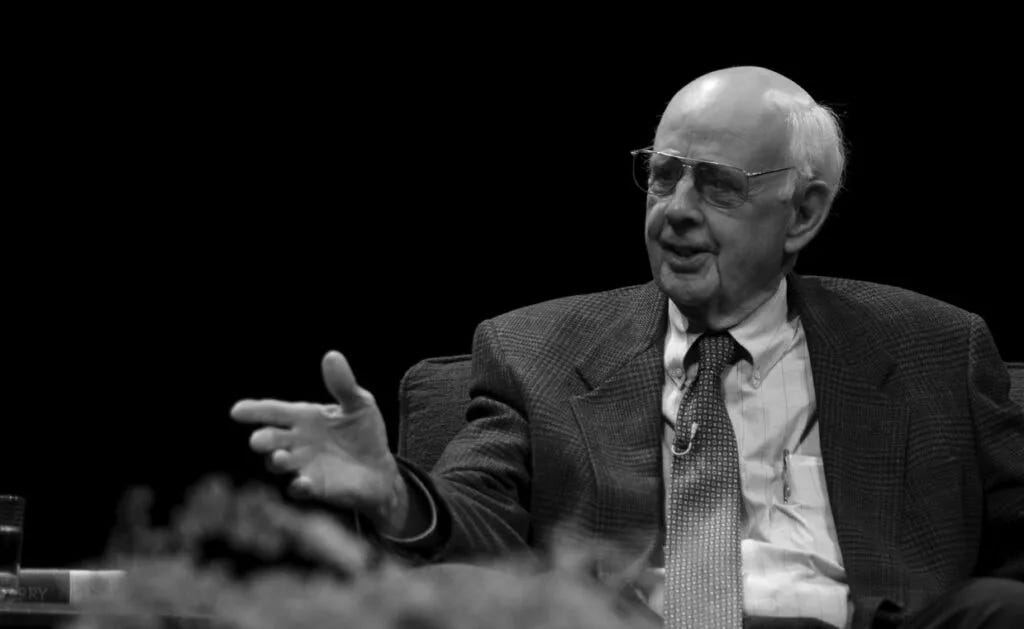Wendell Berry’s Peculiar Patriotism
Plus, In Search of North America’s Great Unclaimed Writer.
Best of The Bulwark in 2022:
CHARLIE SYKES: 2022: A Consequential Year in Review
You can support The Bulwark by subscribing to Bulwark+ or just by sharing this newsletter with someone you think would value it.
Editor’s note: We’re going to be a little slower paced than usual going into New Year’s… As you know, there won’t be a TNB this week, but we’ll still be publishing as news breaks! Take it easy out there in the last days of 2022.
BENJAMIN J. WILSON: Wendell Berry’s Peculiar Patriotism.
In 1934, Kentucky-born artist Ann Rice O’Hanlon created a fresco on a wall in the lobby of the University of Kentucky’s Memorial Hall, a church-like structure completed five years earlier as a tribute to the soldiers from the Bluegrass State who died in the world war. Commissioned through the Public Works of Art Project, a New Deal program, O’Hanlon’s fresco depicted not a sanitized history of Kentucky, but one that included skirmishes between settlers and Native Americans, as well as a depiction of enslaved African Americans working the fields and others playing music for white dancers.
The fresco has always been remarkable, attracting praise for its originality and censure for its racial depictions. In 2015, the president of the university, Eli Capilouto, in response to black student leaders who expressed opposition to the fresco, chose to shroud it. Since then, the university has wavered in its approach to the fresco. In 2017 the fresco was uncovered and explanatory signage was installed. The next year, the university commissioned the Trinidadian-born artist Karyn Olivier to create a companion artwork, entitled Witness, alongside the fresco. In the dome of Memorial Hall, Olivier painted these words of Frederick Douglass: “There is not a man under the canopy of heaven, that does not know that slavery is wrong for him.”
Donald Trump is the product of an exacting and brutal father who undermined him in private, and his damaged childhood has impacted him ever since. In this encore episode from October, Maggie Haberman, author of "Confidence Man," told Charlie Sykes that Trump doesn't really trust anyone — and that the era of distrust we live in now is one of his biggest legacies.
Bulwark+ members can listen to an ad-free version of these podcasts on the player of their choice. Learn more at Bulwark+ Podcast FAQ.
RANDY BOYAGODA: In Search of North America’s Great Unclaimed Writer.
He’s not exactly American. He’s not entirely Canadian, either. He’s definitely not Mexican. After decades of writing short stories that disarm readers through a distinct combination of lushness and anxiety—and which are often focalized through the voice and experiences of a hyper-perceptive kid trying to get along in a succession of new places in the United States and Canada—Clark Blaise might be North America’s Great Unclaimed Writer.
It’s not that major claims aren’t made for and about him, particularly by his better-known contemporaries. John Irving declares he’s the “maestro of our aloneness” and that “No one does heartbreak better than Clark Blaise”; Joyce Carol Oates celebrates his short stories for providing “a dazzling gallery of portraits of North American lives,” lives that “are so palpable, like our own, we understand that they must continue beyond the (mere) ending of a story.” Margaret Atwood calls him “one of the preeminent story writers of his generation” and tells us, in the foreword to This Time, This Place: Selected Stories, that “if you want to understand something about what life was like in the restless, peripatetic, striving, anxiety-ridden, simmering cultural soup of the late twentieth and early twenty-first centuries, read Clark Blaise. He’s the recording angel and the accuser, rolled into one. He’s the eye at the keyhole. He’s the ear at the door.”
🚨OVERTIME 🚨
🎵On the Jukebox…🎵 One Sweet World by Dave Matthews (live in Cleveland.)
Gov. Baker’s take… On the state of the MA GOP. Indeed, “As the two largest political parties became more ideological, they became smaller.”
Farewell speeches… As a former staffer, I was oddly attracted to them: what did legislators learn? What did they regret? Most people don’t pay attention to them, but C-SPAN’s Howard Mortman did. (Here’s my old boss’s speech, which I attended from the press gallery with Fred Barnes, early in my stint at The Weekly Standard, who did an exit interview with him for a column.)
Let’s drop the tariffs on baby formula. Something Democrats and Republicans can surely agree on… right?
The Santos Saga Continues… As he potentially faces federal and local investigations. Also, get a load of this. Lol. As somebody on Twitter observes, George Santos is Bill the Cat from the cartoon Bloom County. Will he be Kevin McCarthy’s 218th vote, or will he be charged with something before January 3rd. Get your bets in! Also, anyone remember the Roland Burris controversy? Fun times.
The kids are alright… When teens in Nixa, Missouri, found out that adults in their community were seeking to ban books, they fought back, and largely won. (Still, they banned ten books.)
Can A Tarot Card Reading Be Defamatory? Ken White takes a look.
Sec. 230 goes to the high court… And with it, the future of the internet.
That’s it for me. Tech support questions? Email members@thebulwark.com. Questions for me? Respond to this message.
—30—
Editorial photos provided by Getty Images. For full credits, please consult the article.




